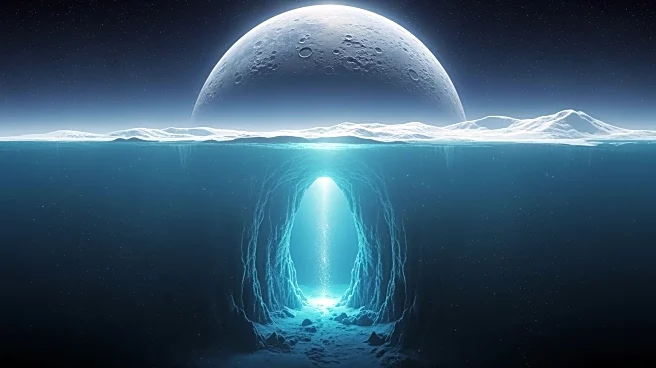What's Happening?
A recent study published in the Science Advances journal suggests that Saturn's moon Enceladus may have conditions suitable for supporting life. Data from NASA's Cassini mission indicates that heat is emitted from both the north and south poles of Enceladus,
which is believed to have a global, salty subsurface ocean. This discovery strengthens the hypothesis that Enceladus could support life, as the presence of water, heat, and essential chemicals like phosphorus and hydrocarbons are crucial for life development. The study highlights the moon's active ocean, which was first identified by Cassini in 2005 when it detected water vapor plumes.
Why It's Important?
The findings about Enceladus are significant as they expand the possibilities for discovering extraterrestrial life within our solar system. Enceladus is now considered one of the most promising locations for life beyond Earth, which could have profound implications for our understanding of life's existence and evolution. The study emphasizes the importance of tidal heating, driven by Saturn's gravitational effects, in maintaining a stable environment on Enceladus. This research could influence future space missions and scientific inquiries aimed at exploring and understanding the conditions necessary for life beyond our planet.
What's Next?
Further research is needed to determine the age of Enceladus's subsurface ocean and its ability to support life over time. Scientists are likely to focus on understanding the moon's energy balance and its implications for sustaining life. This could lead to new missions targeting Enceladus to gather more data and explore its potential for habitability. The study's findings may also prompt discussions among the scientific community regarding the prioritization of Enceladus in the search for extraterrestrial life, potentially influencing funding and research agendas.
















